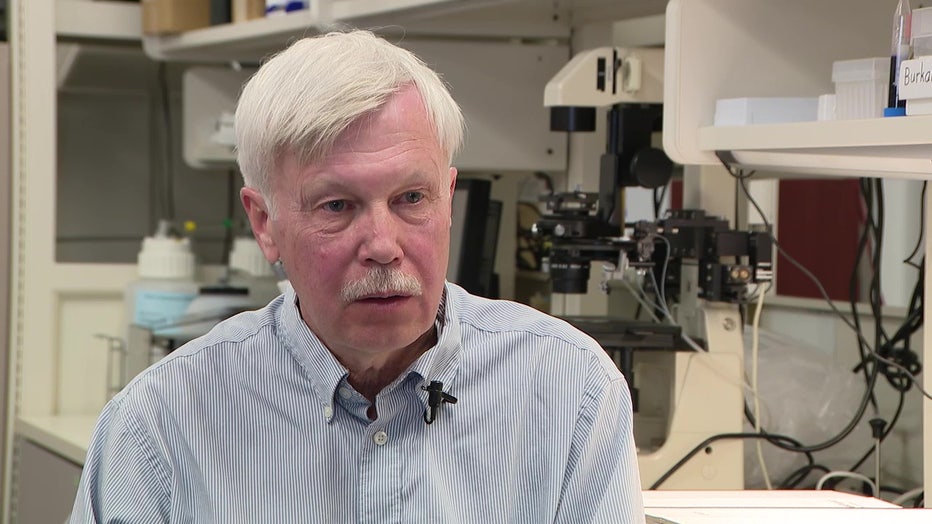Meet Mayo Clinic's Dr. Sergei Ochkur, Arizona's only certified pollen counter
PHOENIX - Allergy season is here in Arizona, and it’s rough. Experts say the worst is yet to come.
Mayo Clinic’s pollen expert Dr. Sergei Ochkur runs the only official pollen counting station in the state – and fun fact – we have 2 allergy seasons.
One of the seasons is during the monsoon, and the other is during spring.

Dr. Sergei Ochkur
The recent rainstorms helped everything blossom, but those wildflowers are not the culprit. In fact, the colder weather is delaying the biggest bloom.
"I am a biologist by nature. This is my calling. Anything with nature and looking at these things and studying this stuff," Dr. Ochkur said.
His job is to collect, anaylize, and record pollen samples at the Mayo Clinic in Scottsdale.
Every week, he starts at the roof to see what he’s caught in a device that captures air particles.
"It takes a lot of time, it takes a lot of energy, and sometimes it’s like a treasure hunt," he said.
As the wind blows, air passes through an opening simulating a human nose or mouth, then all the air particles and pollen stick to the tape inside. He then takes the sample back downstairs to his lab for a closer look under the microscope.
"As we scan, we see ragweed, ragweed, ragweed so this is a ragweed season definitely," he explained.
He says ragweed is the main culprit for allergies right now, but pine is also high, oak came earlier than normal, and mulberry and olive are yet to come.
Dr. Ochkur can also tell if there was a recent dust storm, or how much traffic pollution is in the air. He says car emissions create black spots on the specimen.
The doctor is the only certified pollen counter in the state. Luckily, he’s the ideal man for the job as he ironically doesn’t suffer from any allergies. By collecting all these samples, he’s able to give allergy sufferers a heads up.
"We can help patients … that is a big incentive, too. Hopefully it will be helpful for people out there," Dr. Ochkur said. "You can get prepared, you can take medication ahead of time."
He says there’s around 50 different pollens in the air. The Mayo Clinic is currently working on an app that can track and forecast pollen to help with allergies.


